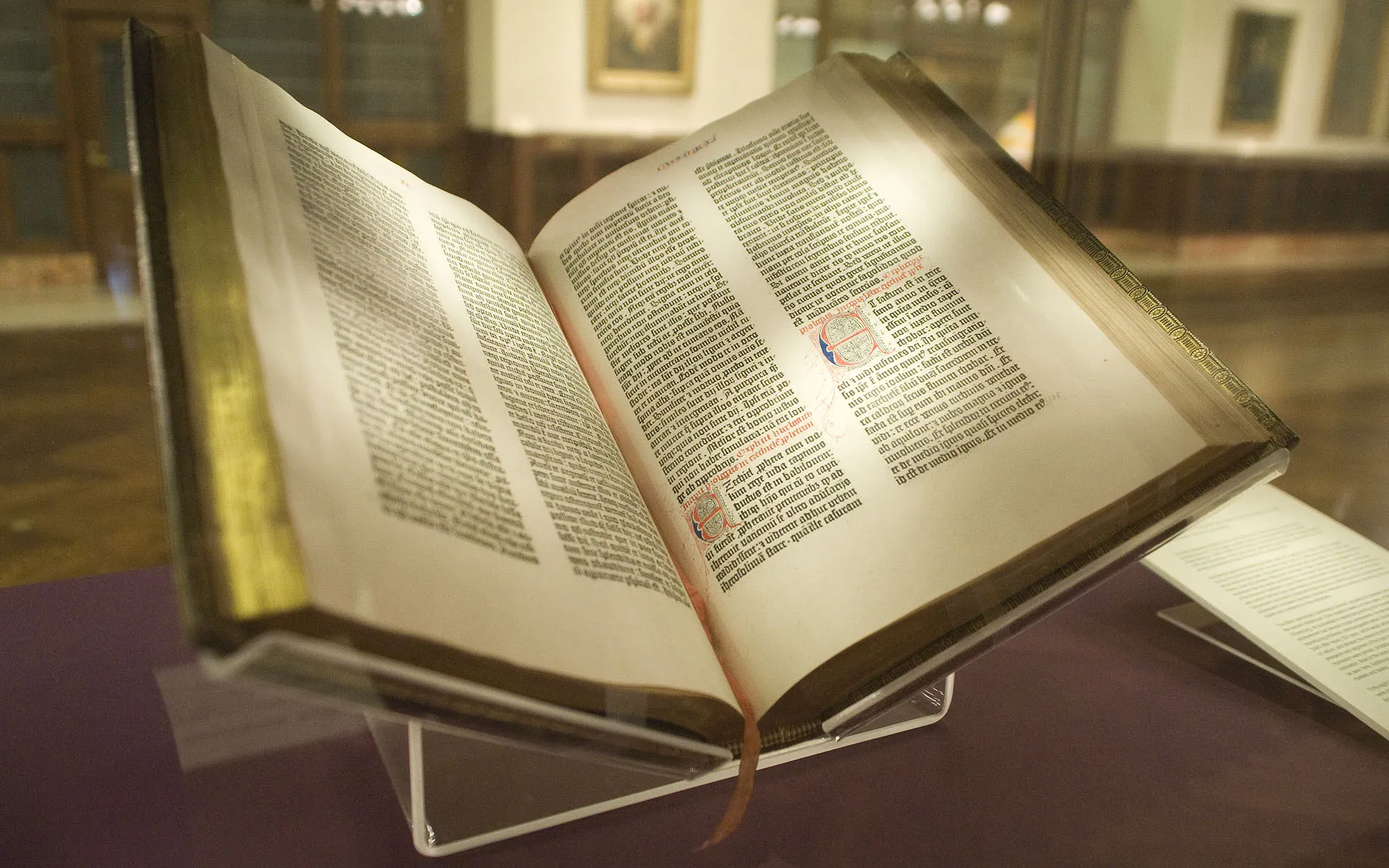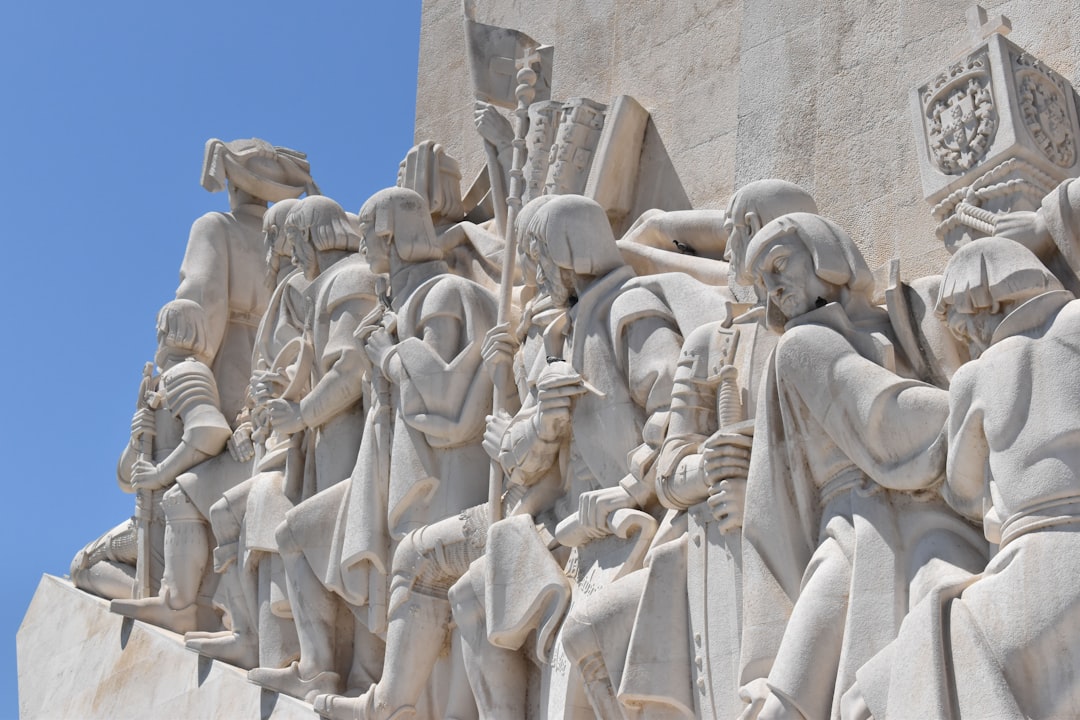For centuries, the Bible has played a significant role in shaping the Christian faith across the world. However, did you know that there are many texts believed to be lost or hidden from the Bible? These are known as the Lost Books of the Bible. In this article, you will learn about the origins of these texts, their significance to early Christianity, and their impact on the faith. Keep reading to uncover the mystery behind the Lost Books of the Bible.
The Definition and Significance of the Lost Books of the Bible
As a youth pastor in your community, you may have heard about the lost books of the Bible and are probably curious about what they are. Simply put, the lost books of the Bible are texts that were not included in the officially recognized canon of Christian scriptures. These texts are often referred to as non-canonical, pseudonymous or apocryphal.

The significance of the lost books of the Bible lies in the fact that they provide a glimpse into the diverse and complex nature of early Christianity. These texts were written during the same period as the biblical books, and some even predate them. They contain stories, teachings, and prophecies that shed light on the beliefs and practices of various Christian communities that existed at the time.
The lost books of the Bible include a wide range of texts that were excluded, forbidden, or considered heretical by the early church. Some of these books were deemed too esoteric or enigmatic, while others were suppressed because they contained teachings that were seen as contradictory to the accepted orthodoxy. Some lost books of the Bible were also missing or forgotten due to the lack of preservation or transmission.

Despite being excluded from the canon, the lost books of the Bible have been the subject of fascination and discovery for centuries. Modern excavations, such as the Dead Sea Scrolls and the Nag Hammadi Library, have uncovered many of these texts, providing scholars and historians with new insights into the development of early Christianity.
In summary, the lost books of the Bible are ancient scriptures that were excluded from the official canon of Christian scriptures. They were deemed heretical, pseudonymous, or apocryphal and were, therefore, excluded, forbidden, suppressed, hidden, forgotten, or lost. Despite their exclusion, the significance of these texts lies in their ability to provide a deeper understanding of the diverse and complex nature of early Christianity. In the next section, we dive deeper into the history and origins of the lost books of the Bible.
Here are some notable lost books of the Bible that you may have heard of:
- The Gospel of Thomas
- The Gospel of Mary Magdalene
- The Book of Enoch
- The Apocalypse of Peter
- The Acts of Paul and Thecla
The History and Origins of the Lost Books of the Bible
The history of the lost books of the Bible is a complex and intriguing one that spans centuries. These books are a collection of ancient texts that were once considered part of the Christian scriptures, but were eventually excluded from the biblical canon. Some of these texts were lost or forgotten over time, while others were intentionally suppressed or destroyed.
The roots of the lost books of the Bible can be traced all the way back to the early days of Christianity. In the first few centuries following the death of Jesus, there was no fixed canon of Christian scriptures. Instead, various groups and communities had their own collections of texts that they considered authoritative.
Over time, however, a consensus began to emerge around certain texts that were deemed to be particularly important or authoritative. The process of creating an official canon of Christian scriptures was a lengthy and complex one that unfolded over several centuries.
One of the key factors that influenced the formation of the canon was the need to establish a clear sense of orthodox Christian belief and doctrine. As different groups within the early Christian movement began to develop their own unique perspectives, some of the texts that were seen as potentially problematic or heretical were excluded from the canon.
Other factors that contributed to the exclusion of certain texts included concerns about the pseudonymous authorship or the apocalyptic, secretive, or esoteric nature of the text. Additionally, some texts were simply lost or destroyed over time, leaving little record of their existence.
Despite their exclusion from the biblical canon, the lost books of the Bible have continued to capture the imagination of scholars and enthusiasts alike. In particular, the discovery of ancient texts like the Dead Sea Scrolls and the Nag Hammadi Library have shed new light on the early development of Christianity and the diverse range of beliefs and practices that existed within the movement.

As we continue to explore the lost books of the Bible, it is important to approach these texts with an open mind and a willingness to engage with their historical and cultural context. By doing so, we can gain a deeper understanding of the rich and complex history of Christianity and its many diverse expressions.
The Excluded, Forbidden and heretical Books of the Bible
As you delve deeper into the world of lost books of the Bible, you’ll come across texts that were excluded, forbidden, or considered heretical by the Church. Why? Well, they didn’t fit the canon — the collection of sacred texts — that was deemed legitimate based on doctrinal and political reasons. Here are some notable examples:
- The Apocrypha
The Apocrypha is a collection of Jewish books written in the intertestamental period, between the Old and New Testaments. While some churches consider the Apocrypha as part of the Bible, others exclude them. The books include Tobit, Judith, Wisdom of Solomon, Sirach, Baruch, 1 and 2 Maccabees, and additions to Esther and Daniel.
- The Gnostic Gospels
Around the 2nd century, a movement called Gnosticism emerged in the Mediterranean world. This mystical belief system claimed to possess secret knowledge of the divine realm that could grant salvation. The Gnostic texts include the Gospel of Thomas, the Gospel of Mary Magdalene, the Acts of John, and the Secret Gospel of Mark. The Church denounced them as heretical because they didn’t conform to the orthodox teachings of Jesus.
- The Pseudepigrapha
The Pseudepigrapha is a group of Jewish texts written under the name of famous biblical figures like Enoch, Moses, and Adam. These texts are considered pseudonymous because they weren’t penned by the people they claim to be. The Pseudepigrapha includes the Book of Enoch, the Testaments of the Twelve Patriarchs, and the Assumption of Moses. The Church excluded them because they were deemed to be full of errors and falsehoods.
- The Dead Sea Scrolls
The Dead Sea Scrolls are a collection of Jewish texts discovered in the caves of Qumran near the Dead Sea in the 1940s. The scrolls date from the 2nd century BC to the 1st century AD and include biblical and non-biblical texts. The controversial part is that some of the non-biblical texts, like the Book of Enoch and the Testament of Levi, contain apocalyptic and messianic ideas that differ from the traditional Jewish and Christian beliefs.
These are just some of the many examples of lost books of the Bible that were excluded, forbidden, or deemed heretical by the Church. The reason behind their exclusion lies in the political and doctrinal struggle for control over the early Church. However, as you explore these texts, you may find that they offer unique insights into the spirituality and worldview of the ancient world.
The Discovery of the Lost Books of the Bible and the Role of Archaeology
The discovery of the lost books of the Bible has been made possible through various archaeological excavations and discoveries. Some of the most notable ones include the Dead Sea Scrolls and the Nag Hammadi library, both of which have played a significant role in unveiling the content of some ancient biblical texts.
The Dead Sea Scrolls, for instance, were discovered in the mid-20th century in the Qumran caves bordering the Dead Sea in Israel. They include fragments and whole texts of the Hebrew Bible, as well as other non-canonical books such as the Book of Enoch, Jubilees, and the War Scroll. These texts provide insight into the religious practices and beliefs of a Jewish sect that lived in the area around the time of Jesus Christ.
Similarly, the Nag Hammadi library was found in Egypt in 1945. It consists of 13 codices composed of 52 different texts, including some gnostic and apocryphal gospels such as the Gospel of Thomas, the Gospel of Philip, and the Gospel of Truth. These texts shed light on the beliefs and teachings of early Christianity and provide alternative perspectives to the stories and teachings found in the canonical gospels.

The role of archaeology in the discovery of the lost books of the Bible cannot be overstated. By unearthing ancient manuscripts and texts, archaeologists have been able to recover and preserve valuable pieces of history that would have otherwise been lost. These discoveries have allowed scholars to gain a deeper understanding of the development of early Christianity and the beliefs and practices of its adherents.
Moreover, the discovery of the lost books of the Bible has challenged traditional beliefs held by some Christian denominations, resulting in controversy and debate. Some Christians view these texts as heretical or pseudonymous and believe that they should not be included in the canon of scripture. Others see them as valuable additions to the Bible that shed light on the diversity of early Christianity.
In conclusion, the discovery of the lost books of the Bible has been made possible through archaeology and excavations, leading to a deeper understanding of early Christianity. These texts have challenged traditional beliefs and opened up new avenues for further exploration and debate among scholars and Christians alike.
The Impact of the Lost Books of the Bible on Early Christianity
As you delve deeper into the mystery of the lost books of the Bible, you may be wondering what impact these books had on Christianity in its early stages. The answer is complex, but it’s clear that the lost books played a significant role in shaping early Christian beliefs and practices. Here are some ways these texts impacted Christianity:
They shaped beliefs about Jesus – Many lost books, including the Gospel of Thomas and the Gospel of Mary, provide alternative accounts of Jesus’ teachings and life. These texts often challenge traditional beliefs about Jesus and present him in a different light. For example, the Gospel of Thomas portrays Jesus as a wise teacher of spiritual truths rather than a miraculous savior.
They influenced Christian practices – Some lost books, such as the Acts of Paul and Thecla, provide insights into how early Christians worshipped and conducted their lives. These texts illuminate the way practices such as baptism and prayer were carried out in the early church.
They were a source of controversy – As different groups within Christianity formed, there was debate about what books should be considered part of the Bible and what should be excluded. Some of these lost books were deemed heretical or pseudonymous, leading to their exclusion from the canon of Scripture.
They were rediscovered in modern times – The discovery of the Dead Sea Scrolls in the 1940s and the Nag Hammadi library in the 1970s shed new light on these lost books and sparked renewed interest in their teachings. These texts have provided scholars with important insights into early Christianity and offered alternative perspectives on well-known stories and figures.

Some notable lost books that impacted early Christianity include the Gospel of Peter, which presents a different account of the crucifixion than the canonical Gospels, and the Gospel of Judas, which portrays Judas as a heroic figure rather than a traitor.
While the lost books of the Bible may not be considered part of the canon of Scripture, their impact on early Christianity is undeniable. By studying these texts, we can gain a deeper understanding of the beliefs and practices of our spiritual ancestors and see how Christianity has evolved over time.
The Content of Some Notable Lost Books of the Bible
After centuries of being lost to history, some texts have surfaced that shed new light on the early Christian church. These books are often referred to as the “forgotten scriptures” and they offer a glimpse into the diverse beliefs and practices within early Christianity. Here are some of the most well-known lost books of the Bible:
The Gospel of Thomas – This text is a collection of sayings attributed to Jesus that were not included in the canonical gospels. The Gospel of Thomas was discovered in 1945 near Nag Hammadi, Egypt, and it has been influential in the study of Gnosticism, a diverse religious movement that flourished in the first few centuries of the Christian era.
The Book of Enoch – This book is an important work in Jewish and Christian apocalyptic literature, which deals with the end of the world. The Book of Enoch is believed to have been written in the 2nd century BCE and it contains visions and prophecies related to the coming of a messiah.
The Acts of Paul and Thecla – This text tells the story of the conversion of Thecla, a wealthy woman who becomes a follower of Paul. The Acts of Paul and Thecla was widely circulated in the early Church and it was a popular work of literature in its time.
The Epistle of Barnabas – This book is an early Christian text that is attributed to the apostle Barnabas. The Epistle of Barnabas was highly regarded by some early Christian leaders but was excluded from the official canon of the New Testament.
The Gospel of Mary – This text is believed to be a Gnostic gospel, similar to the Gospel of Thomas. The Gospel of Mary was discovered in 1896 near Akhmim, Egypt, and it provides a unique perspective on the life of Mary Magdalene.
While the content of these lost books of the Bible can be controversial and challenging, their discovery has broadened our understanding of early Christianity and helped us to appreciate the diversity of beliefs and practices that existed in the early Church.
The Controversy and Debate about the Lost Books of the Bible in Modern Times
When it comes to the lost books of the Bible, there is no shortage of debate and controversy surrounding them. Many people are curious about whether or not these forgotten texts should have been included in the canon of the Bible, while others believe that they were rightfully excluded due to their heretical or apocalyptic content.

Here are some of the most common points of debate and controversy surrounding the lost books of the Bible:
Did the early church intentionally exclude the lost books of the Bible?
There are many theories as to why certain texts were excluded from the Bible canon, including political motivations, concerns about heresy, and a desire to maintain orthodoxy. Some people believe that it was a deliberate attempt to hide certain teachings from the public, while others argue that there were sound reasons for excluding them.Are the lost books of the Bible authentic?
One of the key debates surrounding the lost books of the Bible is whether or not they are truly authentic. Many of these texts were written centuries after the canonical texts, and some scholars believe that they were pseudonymous or otherwise not written by the people they claim to be. Others argue that they provide valuable insight into the beliefs and practices of early Christians.Do the lost books of the Bible offer valuable spiritual insights?
Another point of debate is whether or not the lost books of the Bible contain spiritual insights that are worth considering. While some people believe that they offer a unique perspective on early Christianity, others argue that they were excluded for a reason and should be treated with skepticism.Should the lost books of the Bible be included in the canon today?
Finally, many people wonder whether or not the lost books of the Bible should be included in the canon today. Some argue that they provide valuable historical and spiritual insights, while others believe that they were rightfully excluded for their heretical or apocalyptic content.
Overall, the controversy and debate surrounding the lost books of the Bible is as lively today as it was centuries ago. Regardless of where you fall on the issues, there is no denying that these texts have played an important role in shaping both the history and the beliefs of Christianity. Here are some of the most notable lost books of the Bible that have caused controversy throughout history:
- The Gospel of Thomas
- The Gospel of Mary Magdalene
- The Book of Enoch
- The Apocalypse of Peter
- The Acts of Paul and Thecla
By exploring these texts and engaging with the debates surrounding them, we can gain a greater understanding of the complexity and richness of early Christianity.














